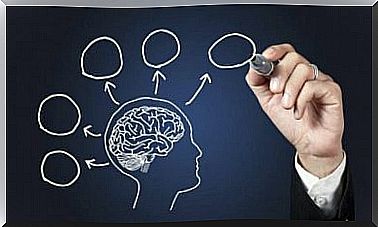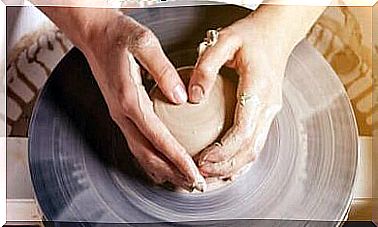Marcelo Ceberio Talks About Resilience

Marcelo Ceberio has written books such as La Buena Comunicación (Good Communication), Los Superhéroes también Van a Terapia (Heroes also need therapy), and Cenicientas y Patitos Feos (Cinderella’s Ugly Ducklings ). His astonishing bibliography is inspiring and based on communication, psychodiagnosis and psychotherapy.
It is worth noting his research in systemic therapy at the Mental Research Institute in Palo Alto, California. He teaches there and represents Argentina at the Escuela de Terapia Familiar (School of Family Therapy) at the Hospital de Sant Pau in Barcelona.
Likewise, Marcelo Ceberio has been part of the deinstitutionalizing effort in Trieste, Italy. This is a statement of his revolutionary approach to clinical practice. It is always a pleasure to hear him talk about the importance of working on oneself and reflecting on society.
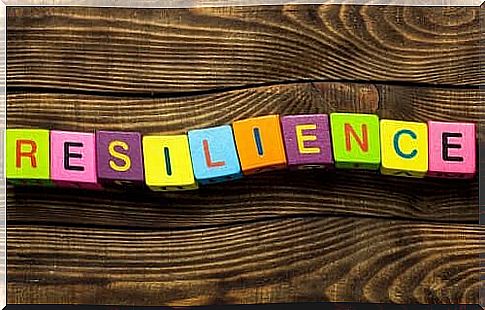
Interview with Marcelo Ceberio
In this interview with Marcelo Ceberio, you will learn more about the concept of resilience. In Man’s search for meaning, Viktor Frankl described the transcendence of self-worth in our lives. Being resilient can affect your well-being and improve your self-esteem.
Marcelo Ceberio sees resilience from a systemic perspective and a relational point of view. That way, the psychological resources you use to meet obstacles are not the only important thing. Your environment also acts as a mediating tool.
This very valuable and interesting approach can help us expand everything we knew about resilience, if possible. Now you can see it as a synergistic combination of biological aspects and your emotional intelligence. Let’s look at what Marcelo Ceberio has to say about it.
What do you think is resilience, Marcelo Ceberio?
Simply put, you can define resilience as the ability that humans have to survive difficult times. When they feel vulnerable to things, a resilient person can use their resources to face, adapt, and overcome difficulties.
What can you tell us about resilience from a systemic point of view?
Resistance is a relational concept. It happens when you interact with other people and you have to trust yourself to be able to face your problems.
According to resilient abilities, what is so more defining? Personal resources or environmental resources?
Personal resources are the ones you already have. These are the ones that come from yourself and are developed with each interaction with others and with the problems you face. Of course, the environment or context is also very important. It is a stimulating and motivating factor to promote one’s resilient resources.
I could say that both are relevant because one influences the other to increase or decrease itself. I am me because of you, which means your identity comes from your interactions.
You are the interaction with a context, actions, situations, personal resources, biology and ascribed meanings. All this makes you resilient.
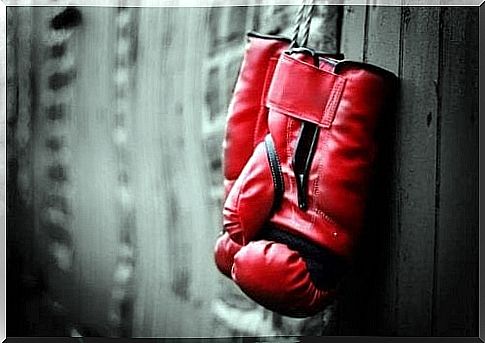
Is love related to resilience?
Love is essential, not only in resilient people, but for the whole of life itself. I have always said that there are four familiar elements in nature: air, fire, water and earth. In human territory you have a fifth element: Love.
Love, in terms of resilience, is what keeps us from disasters. You are a relational creature. You need others to ensure your survival.
This relationship has been proven in the findings of a study on adult development at Harvard. It is about a research project from 1938, which has continued and has examined the lives of over 700 men and women, and in some cases also their partners.
This study, which is also the longest study in history, shows that the importance of living comes from our relationship. You will need to maintain close relationships. It is a fact that the happiest and most mentally healthy individuals are those who share a strong bond with family and friends.
One of the study’s directors, Waldinger, points out the importance of good quality relationships, avoiding those that are conflict-ridden, and focusing on the healthy ones. Having many friends will not make you the happiest person on earth. The quality of your relationships will, on the other hand. It is not about quantity, but about quality.
To be able to put yourself in another person’s place, to feel empathy, to understand them. This is a way to reduce conflicts and live a less complicated life. This will help you notice the good in any situation, remove the traumas and see the greatness in each situation.
However, I do have to note that there are certain situations where it is sometimes difficult to see the glass as half full, such as the death, assault or disaster of a child.
Do you think a person without strong ties can still be resilient? If so, how?
Attachment, a concept undeveloped by J. Bowlby in the 40s, says that in order to survive, people need to at least be in touch with an important person in their lives. Not someone to feed them (remember, people can not stock up on themselves), but to feel protected and sure of love.
Attachment does not only involve emotions. It is also a purely interactive concept, and thus loving feelings can stay with you all your life and make you stronger. Insecure people with problematic relationships, in many cases did not feel loved as children and lacked the support that could give them self-confidence and self-esteem.
While biological and emotional interactional ways can certainly be developed later, it can also be learned and systematized early on. B. Cirulnyk is one of the authors who has worked most on resilience.
He talks about resilience teachers , who are emotional support, mentors and motivators who can help overcome difficult situations.
It is worth noting that the loving persons are not just persons such as parents, partners, godparents, aunts or friends. Movies, quotes, stories, books and songs can also stimulate and create motivation.
If you have had a secure attachment, this may make it easier for you to motivate yourself. This is the true result of attachment: To make you stronger to be your own person and to face the problems of your life, but also to have the ability to be saved by people in the adult world, to be helped and supported in the fight against conflicts.
At the same time, it is about having the strength to offer yourself as an affiliate or teacher in resilience.
How does our self-esteem affect our ability to be resilient?
Self-esteem and resilience are two concepts that are interconnected. A person whose personal praise is balanced is also strong and has enough resources to meet the problems that may arise. They want to know when to ask for help and surround themselves with positive people who can guide them.
You may not be aware of these abilities sometimes, all depending on how you see yourself. I define self-esteem as self-awareness, recognizing one’s own resources as well as weaknesses, knowing that being vulnerable also makes one stronger.

How can a person deal with lack of self-esteem and their insecurities, Marcelo Ceberio?
Lack of self-esteem and feeling insecure are problems that are closely linked. If you lack self-esteem, you are insecure. Your insecurity lowers your self-esteem and you will be lost in an endless cycle.
Ugly ducklings and cinderellas trying to overcome these feelings of insecurity and lack of self-esteem will have to stop doing things just to feel that people like them and care about them. Self-esteem is a process that begins from within, not the other way around.
Underrated people try to do things for others, in a secret desire to be recognized, and do not realize that they are putting their own desires behind others. Just because they might want a hug or a sign of love.
They turn into macho men, superhero women, ambulances, firefighters, perfect students, victims, just to gain a few grams of self-esteem with each interaction. This does not work.
A person with low self-esteem is like a bag full of holes. You try to fill it, but you can not. Yes, everyone likes praise and hearing how good they are, how smart they are and how sweet they are, but it’s almost a pain to be addicted to it.
Look into yourself and make a list of qualities and shortcomings. Try to understand who you are with all your weaknesses and strengths. This will give you dignity in your own eyes. Put yourself first, give without expecting anything in return, do the things you want, ask for things, and be with the people who give you sincere love and who encourage you every day.
Some people have had really bad experiences in life but remain resilient. Why?
It’s hard to pinpoint just one single thing about people like this. It’s still a mystery. Humans have survived wars, concentration camps, family abuse, famine, poverty, and every other vulnerable situation. They have a natural ability to survive and however, some people with fewer problems are unable to survive in these environments.
Resistance is a synergistic composition of biological abilities (neurotransmitters such as serotonin, dopamine, endorphins, hippocampus, which is the center of learning with available ad hoc information, good development of mirroring hormones that help you feel empathy), emotional intelligence: Self-awareness, self-regulation (right hemisphere) to see the positive sides of things, creativity to find ways to get out of trouble, and empathic abilities to create healthy and nourishing bonds.
A resilient person has a cognitive attitude that structures a sequence of positive thoughts. These positive thoughts cancel out the negative ones that traumatize and infect our emotions.
It is also an evolutionary process. There are resilient adults who create a method to identify what made them resilient. Hard-living parents who overcome painful situations have motivated their children to be resilient as well.
They have given them the resources to deal with every problem, in addition to the explicit message and doctrine. For me , these are the qualities I have noticed in resilient individuals.
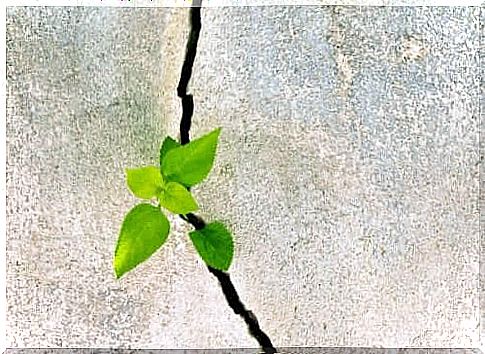
Is there a type of resilient personality?
Good question! I think there is a resilient personality or at least a tendency to be resilient. Some people simply have the ability to survive or easily adapt and survive things, as I described in the last question.
However, resilience can be created and stimulated. In psychotherapy, we create resilience. I mean, we’ve increased some people’s resources so they can develop an ability to deal with problems they encounter.
This means that it may be natural for some people to have the resources to solve and overcome disasters, but others need a little help or motivation to create these tools for survival.
